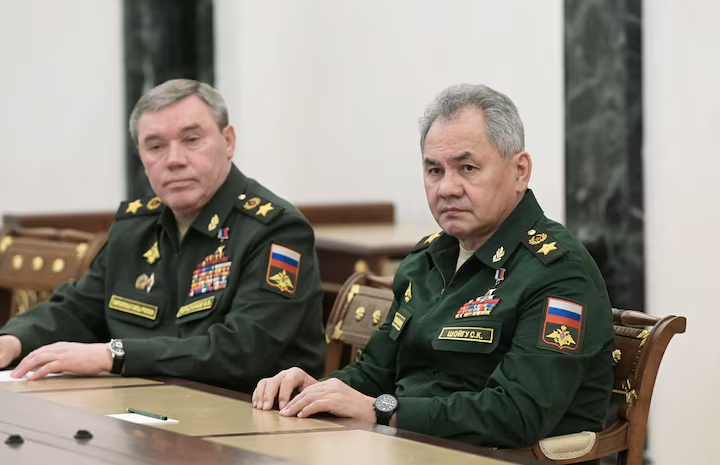In a significant escalation of international legal action against Russian leadership, the International Criminal Court (ICC) has issued arrest warrants for former Russian Defense Minister Sergei Shoigu and Chief of the General Staff Valery Gerasimov. The warrants, announced on Tuesday, accuse these high-ranking military officials of war crimes, crimes against humanity, and other international crimes related to Russia’s actions in Ukraine.
The ICC’s decision centers on two specific war crimes: directing attacks at civilian objects and causing excessive incidental harm to civilians or damage to civilian property. Additionally, the court has leveled charges of crimes against humanity against both Shoigu and Gerasimov.

Reuters
These allegations stem from a series of strikes against Ukraine’s critical infrastructure, particularly its power grid. The ICC states that the alleged crimes involve “a large number of strikes against numerous electric power plants and sub-stations” carried out across Ukraine between October 2022 and at least March 2023. These attacks had severe humanitarian consequences, leaving large portions of the Ukrainian population without power during harsh winter months.
This latest action by the ICC brings the total number of top Russian officials wanted for war crimes to four. Previously, the court had issued arrest warrants for Russian President Vladimir Putin and Russian official Maria Lvova-Belova, both accused of involvement in an alleged scheme to deport Ukrainian children to Russia.
The issuance of these warrants marks a significant step in the international community’s efforts to hold Russian leadership accountable for actions in Ukraine. It underscores the ICC’s commitment to investigating and prosecuting alleged war crimes, regardless of the accused’s position or nationality.

Reuters
However, the practical implications of these warrants remain uncertain. Russia is not a party to the Rome Statute, the treaty that established the ICC, and does not recognize the court’s jurisdiction. This stance makes it unlikely that Russian authorities will cooperate with any extradition requests or surrender the accused individuals to the ICC.
Nevertheless, the warrants serve several important functions. They limit the international travel of the accused, as ICC member states are obligated to arrest them if they enter their territories. The warrants also send a strong message about the international community’s stance on the conduct of the war in Ukraine and may impact Russia’s diplomatic and economic relations with other countries.
As the conflict in Ukraine continues, these arrest warrants represent a significant development in the ongoing efforts to address alleged war crimes and hold those responsible to account. The international community will be watching closely to see how this legal action unfolds and what impact it may have on the broader geopolitical landscape.



